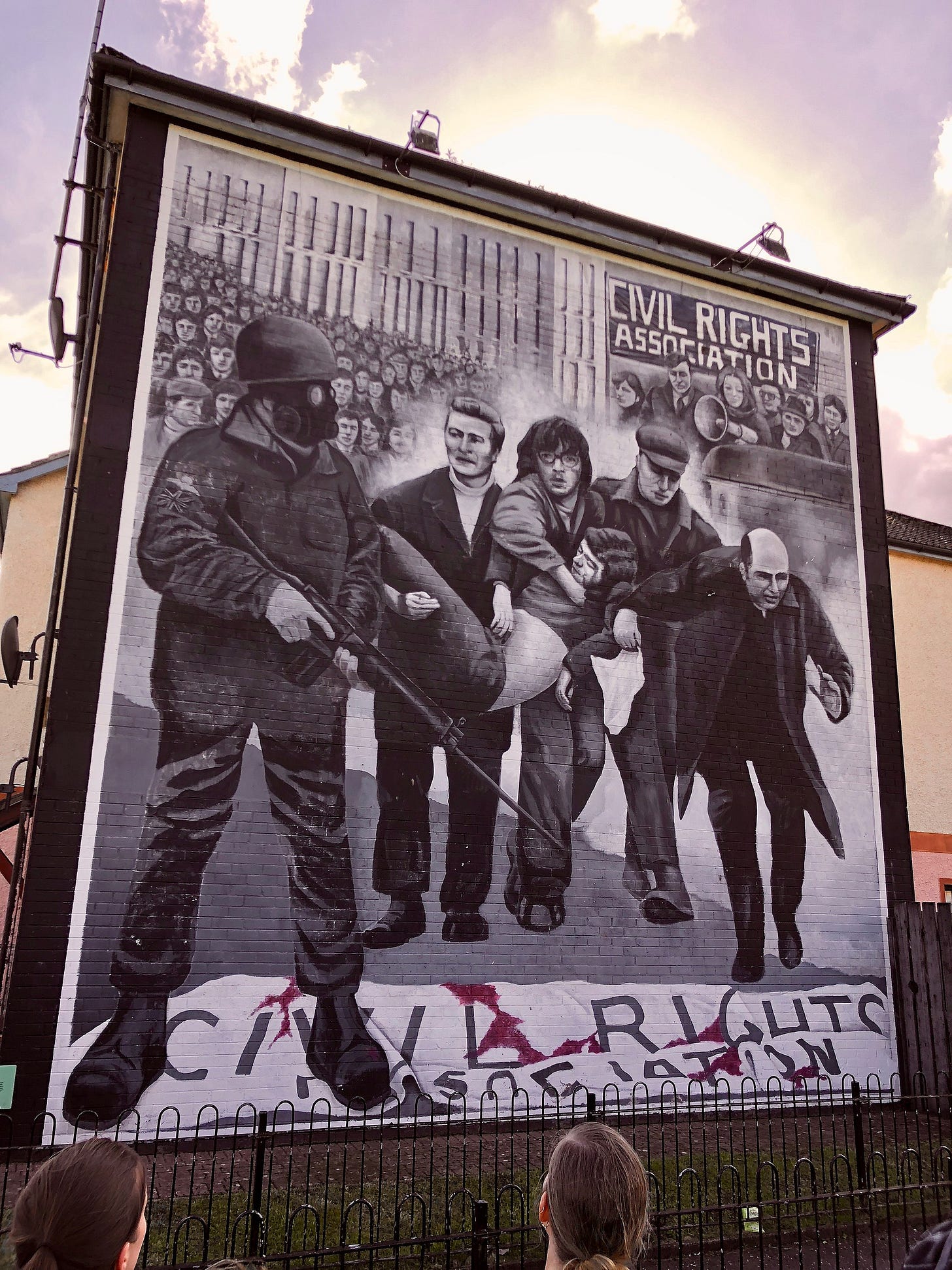The Mysteries of History (January 30 Edition)
King Charles Beheaded, Gandhi Assassinated, Tet Offensive in Vietnam, and Sunday, Bloody Sunday in Northern Ireland
“Those who cannot remember the past are condemned to repeat it.” — Spanish-American philosopher George Santayana, 1905
1649 — King Charles Executed for Treason
public domain image from wikimedia commons
After marrying a Catholic in Protestant England, dissolving Parliament several times, and then trying to rule without any input or influence from Parliament at all (which led to the first English Civil War), King Charles the First was beheaded for treason on this date in 1649.
That first English Civil War (1642 to 1646) pitted the Parliamentarians, led by Oliver Cromwell, against the Royalists. The Parliamentarians won, monarchy was done away with, and King Charles the First was then found guilty of treason and beheaded. Cromwell became the head of the government, later died, leaving his son in charge. Then the monarchy returned to power, with King Charles the First’s son Charles the Second becoming King. Cromwell (Oliver, that is, the father) was posthumously found guilty of treason and yanked out of his tomb so that his detractors could hang his dead body.
And you thought modern politics was bizarre, macabre, and nonsensical.
Questions: How is Oliver Cromwell viewed in modern times in England? For how many years was the monarchy "in hibernation"? What happened to Cromwell's son?1948 — Mohandas Gandhi Assassinated
public domain images from wikimedia commons
Religious differences led to the assassination of Mohandas (“Mahatma”) Gandhi on January 30, 1948. A Hindu man miffed about Gandhi’s tolerance of Muslims fatally shot Gandhi, who promoted and practiced nonviolent protest.
See the previous article “1950 — Republic of India Established” here.
Questions: Why is Mohandas Gandhi sometimes called Mahatma Gandhi? Where was Gandhi living when he decided to make fighting injustice his life's work? How many times, and for how many total years, was Gandhi in prison, and in which countries? What American leader was strongly influenced by Gandhi's methods of nonviolent civil disobedience, or protest?1968 — Tet Offensive in Vietnam
public domain image from wikimedia commons
The Viet Cong of northern Vietnam launched their largest attack against the South and the American forces on this date in 1968 (a few months after my uncle John Perry “Uncle Fudd” Patton was killed in Vietnam, as mentioned here, in the article “1968 — The Battle of Khe Sanh Begins”). This multi-pronged attack came to be known as the Tet Offensive.
Although the offensive was not successful in the usual military sense (the Viet Cong lost far more people than the South/the Americans, and were repelled when they tried to take the American Embassy in Saigon), it was a wake-up call or even a shock to America and its soldiers, who had been led to believe that the war would soon be coming to a conclusion favorable to America, and the soldiers would be coming home (alive).
Questions: Why was this series of attacks called "The Tet Offensive" — who or what or where was "Tet"? How many Viet Cong died as part of this campaign? Was it a Pyrrhic victory for one side or the other? How much longer did the war last, and with what conclusion?1972 — Sunday, Bloody Sunday
public domain image from wikimedia commons
“Sunday, Bloody Sunday” is not just a song by the Irish rock band U2. On this date in Londonderry, Northern Ireland, in 1972, thirteen unarmed protesters were shot dead by British soldiers. Seventeen others were wounded. The biggest rabble-rousers were not targeted — the soldiers simply shot at random into the crowd of demonstrators. All of those killed were Catholic. England and Irish citizens loyal to England were primarily Protestant.
This touched off “The Troubles,” with Catholics and Protestants hating and killing each other — not just Englishmen and Irishmen terrorizing and maiming and killing one another, but Irishmen engaging in a Civil War over these divided loyalties, too.
When Irish rocker and guitar virtuoso (who was also universally acknowledged as a “lovely man”) Rory Gallagher played concerts in Northern Ireland during this time period, mixed crowds (Protestant and Catholic) joined together to enjoy his music, and an unspoken but understood temporary truce would be in effect for the duration of the event.
public domain images from wikimedia commons; U2 left, Rory Gallagher right
Questions: How long did "The troubles" last? How many died? Was anything accomplished by all this heart-wrenching misery? Is there still "bad blood" between the two sides? Was the animosity mainly about politics, or religion, or equal parts both?










